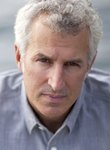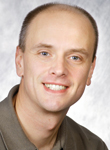Cowen, Travis appointed ACSF associate directors


Edwin “Todd” Cowen, professor in the College of Engineering, and Alex Travis, associate professor in the College of Veterinary Medicine, become associate directors of the David R. Atkinson Center for a Sustainable Future (ACSF) July 1.
Cowen will succeed Jefferson Tester, the Croll Professor of Sustainable Energy Systems, as associate director of energy; and Travis will succeed Drew Harvell, professor of ecology and evolutionary biology, as associate director of environment.
Frank DiSalvo, the J.A. Newman Professor of Chemistry and Chemical Biology, and director of the ACSF, said: “Todd and Alex have been involved with ACSF from our early days, including leading our faculty advisory board. They bring a wealth of experience, enthusiasm and ideas to the associate director positions.”
Cowen’s research program in environmental fluid mechanics, environmental transport processes, water-wave induced flows, lake hydrodynamics and quantitative-imaging techniques requires collaboration with faculty colleagues from multiple disciplines.
One of Cowen’s newer interests is wind and hydrokinetic energy. He is designing and testing small-scale wind turbines for urban use, a project funded by the ACSF Academic Venture Fund. Cowen, who also serves as director of the DeFrees Hydraulics Laboratory, is developing a water-powered water pump in collaboration with Pliant Energy Systems, a project funded by an ACSF Rapid Response Fund award.
Travis’ research takes two approaches to wildlife conservation. His lab develops techniques to assist reproduction that can help preserve the genetic diversity of endangered species in captive breeding programs. Recently, Travis made news as the first in the Western Hemisphere to successfully reproduce a dog from a frozen embryo. In work that earned him a Pioneer Award from the National Institutes of Health, Travis extended his studies of sperm to nanobiotechnology for producing biological energy and medical diagnostics.
Travis seeks to preserve wildlife in the field, working on the interface of biodiversity conservation, human poverty and hunger. Collaborating with faculty from all over campus inspired Travis to found the Cornell Center for Wildlife Conservation, launched in 2008 with the help of the ACSF.
Media Contact
Get Cornell news delivered right to your inbox.
Subscribe